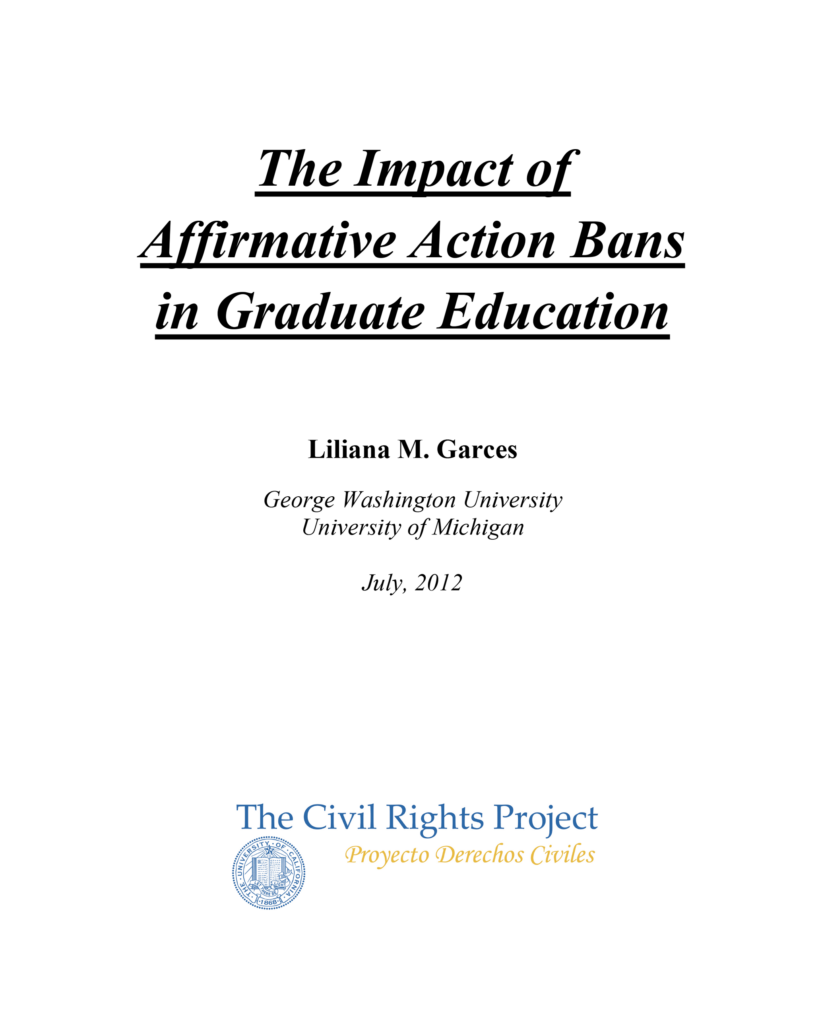FOREWORD
This study by Dr. Liliana Garces raises an issue of great importance for both the nation’s future and the national debate over the necessity of affirmative action. America’s future depends on effectively competing in a global market and maintaining the world’s strong research capability. That capability is developed in graduate training at leading universities. As the nation passes through an historic demographic transformation and members of traditionally excluded racial and ethnic minorities make up a far larger proportion of the next generation, we are failing to train these students with the skills needed to sustain and expand our technology and research capacity. The most important tools for recruiting traditionally excluded students include a variety of affirmative action programs that identify and nurture talent among groups often denied equal opportunity to prepare for such training. All of our leading research universities and professional associations adopted such policies.
As affirmative action has been banned in several states and the U.S. Supreme Court is set to consider the issue for the third time this fall in Fisher v. University of Texas at Austin (2011), it is vital to understand what impact the loss of affirmative action has had in particular states and to consider whether these states have found alternatives that maintain diversity without affirmative action. It is particularly important to consider graduate education since the major alternatives proposed for undergraduate access—the percent plan and admission by social and economic status—cannot be applied to graduate admissions where decisions are not made among students from a single state, undergraduate programs vary widely in terms of adequate preparation for graduate work, and students are admitted as adults, not on the basis of their family circumstances.
If the need is truly urgent and the programs in states prohibiting affirmative action don’t work, the country’s ability to prepare its changing population to sustain and expand these critical capacities will be severely damaged. Dr. Garces’ important work suggests that this is a likely outcome.
In compliance with the UC Open Access Policy, this report has been made available on eScholarship:
